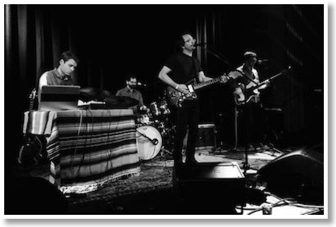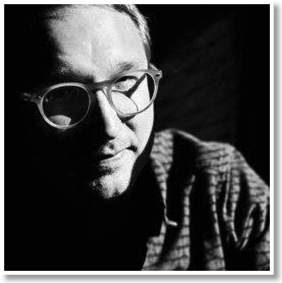The Musical Process

Just before Staples set out for his first full-band headlining tour in years, we caught up with this contemporary American journeyman via email about his music, artistic process, and insights earned along the way.
Nori Hubert: On your recent release, Cheap Shades, would you say some of your songs are autobiographical, or do you prefer to craft lyrics from observations on everyday insights or experiences?
Chris Staples: Not so much autobiographical, well, intentionally at least. Looking back at “Cheap Shades” I definitely relate to parts of it. I write a lot from just observations, movies that I watch or books that I read.
Was this album, Cheap Shades, shaped and crafted from a certain concept?
Well, it’s just a digital E.P. It has two new tracks, a cover, and two live full-band versions of songs that have been out for a while. It’s just a collection of strong tracks I had around.
What is your favorite part of the songwriting/music making process?
I enjoy recording a ton. I demo songs and keep re-demoing them and they continue to take shape. After demoing a song four to ten times I eventually decide it’s done. I really enjoy this process and it’s always full of surprises.
How do you go about writing and shaping your songs?
I generally start with lyrics. I have lots of notes laying around with ideas and lines. I usually start with a guitar part and then scan my notes looking for lyrics and images that flow together thematically or fit in a story. That’s how I’ve been working lately but I generally don’t work in the same way for too long.
Which part of the music process do you find most challenging? And in what way?
All of it. Just kidding. Playing in a four-piece band, and scheduling that is pretty hard. Bringing a bunch of people together who have busy adult lives is tough.
Many of your songs, such as “Cindy, Diana, Janet & Wanda” and “Black Tornado” pair foreboding lyrics with poppy instrumentals. Is this juxtaposition an intentional artistic choice, or a by-product of your musical process?
It’s a thing I like to play with. I think it’s a funny to have a happy song with a minefield hidden in it. There is a nirvana song that that does this expertly. “In Bloom”. “He’s the one, who like all our pretty songs, and he likes to sing along and he likes to shoot his gun, but he don’t know what it means”. Kurt had a type of person he didn’t like buying his records and he used this poppy tune as a [T]rojan horse for a pretty scathing message. I think my admiration for him swelled after I discovered what he was doing in this song. I really don’t know of another example of this in rock music.

Tom Petty, Nirvana, Descendants, Tom Waits, Gillian Welch, Willie Nelson, Dave Bazan, Gonzales, Tito Puente, Rodrigo Amarante, Conor Oberst, so many others. I was really into D.C. post punk when I was younger. I like Jawbox, Burning Airlines, and Jawbreaker. I’ve really been into smaltzy 70’s balladeers lately, like Gilbert O’Sullivan. I had a pretty heavy Dylan phase in my late 20’s. It was funny. I didn’t like Dylan in my teens or early 20’s, for some reason when I was 27, Blood on The Tracks hit me like a ton of bricks. I love so much music now. I don’t know how any of it informs my writing. I think I’ll keep it that way. I don’t feel like I’ve ever really tried to channel any artist specifically.
How would you define your personal musical style?
Minimalist, hypnotic, and subtle.
Your previous album, American Soft, was written in two different locations on opposite ends of the country. Can you tell us how did this affect the process of making the album and feel of the final release?
I spend a lot of time in Seattle and periodically I return to Florida to take a break from Seattle. l think it’s two cycles: One of experiencing culture and people, and one of solitude. It’s slow where I came from and it’s a great place to come and work out your ideas you’ve mined from somewhere else.
What would you say has been the most important learning experience in your journey as an artist thus far?
I think just trusting my instincts. Being myself in writing and singing. People sense when an artist is affecting a tone or vibe.
Would you like to say anything else about your music?
Please buy it?
by Nori Hubert


